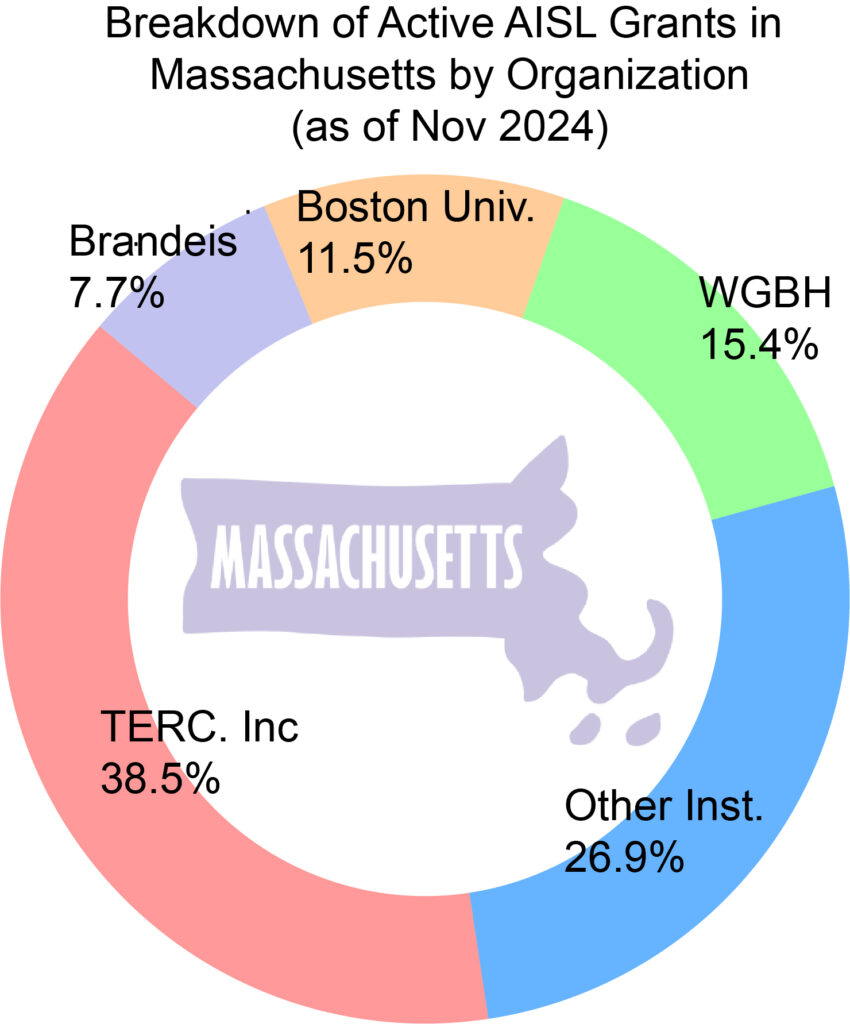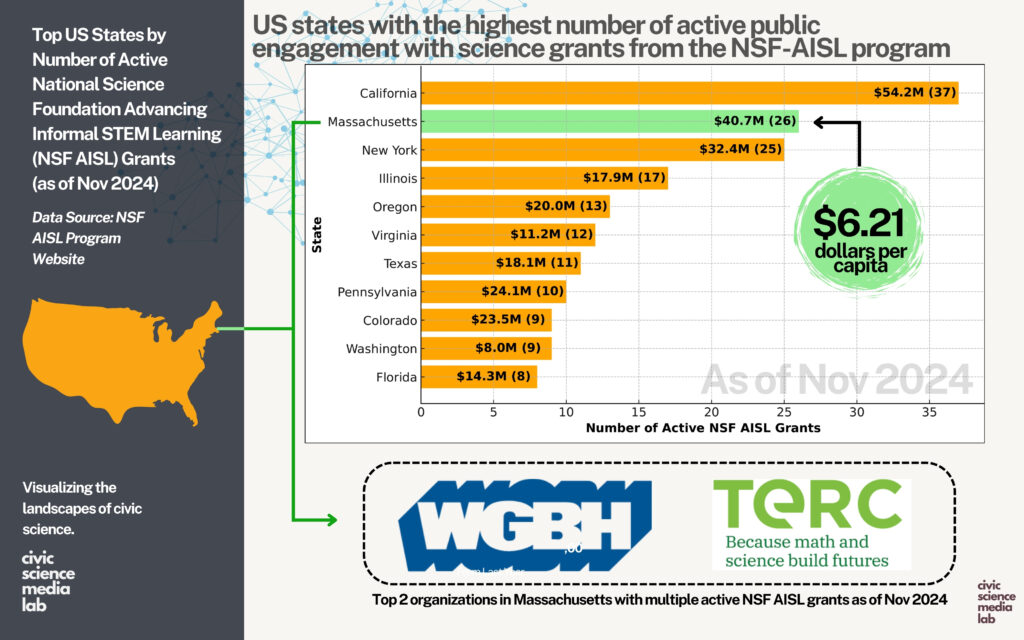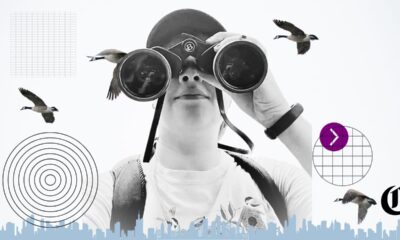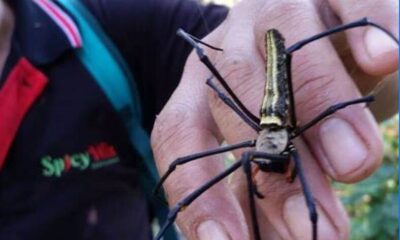Civic Science Observer
Visualized: Massachusetts is no. 2 state with highest number of active public engagement with science grants from the NSF-AISL program
With a long funding history, the AISL program has empowered a wide array of innovative projects across its 5 categories that connect science with diverse communities across the US.
The National Science Foundation’s Advancing Informal STEM Learning (NSF AISL) program supports projects that “serve public audiences, and specifically focus on public engagement with and understanding of STEM, including community STEM, public participation in scientific research, science communication, intergenerational STEM engagement, and STEM media. In a nutshell, the AISL program funds projects that aim to broaden the public’s engagement with STEM outside formal educational settings.
These grants are structured into 5 categories, including Synthesis Projects that analyze existing research, Conference Projects that bring together stakeholders, Partnership Development and Planning Projects that lay the groundwork for future initiatives, Integrating Research and Practice Projects to advance the field, and Research in Support of Wide-reaching Public Engagement to foster large scale projects.
Here’s how active AISL grants are distributed across the U.S (see the downloadable visual and text below).
Top 5 States with Active AISL Grants as of Nov 2024
• California: 37 grants
• Massachusetts: 26 grants
• New York: 25 grants
• Illinois: 17 grants
• Oregon: 13 grants
This means the top 5 states account for about 40% of all active AISL grants, while the remaining states hold the other 60%.
Massachusetts Highlights
In Massachusetts, several organizations are recipients of active grants as of Nov 2024:

• TERC Inc.: 10 active awards, 38% of the state’s total
• WGBH Educational Foundation: 4 active awards, 15%
• Boston University: 3 active awards
Additional grants support institutions such as Harvard University, University of Massachusetts (Boston, Lowell and Dartmouth), Young People’s Project Inc., and Brandeis University.
About TERC and WGBH
Based in Cambridge, Massachusetts, TERC Inc., is a nonprofit that is on a mission to improve mathematics and science education at the “frontiers of theory and practice to develop a deeper understanding of learning and teaching.” On their website, they describe their vision as “grounded in the belief that science and math literacies are critical to strengthening and preserving a democratic society.”
TERC has received multiple AISL grants for projects across categories that include the following active grants. (1) Reimagining Equity: An Informal STEM Learning Equity Resource Center, a Partnership Development and Planning Project, in collaboration with the Detroit Zoological Society to address systemic barriers in STEM learning environments and promote equitable, inclusive practices across the field; and (2) Research to Understand and Inform the Impacts of Ambient and Designed Sound on Informal STEM Learning, classified as a Research in Support of Wide-reaching Public Engagement Project, is investigating how soundscapes in informal learning spaces influence STEM engagement, working with partners in culturally diverse communities.
WGBH, the Boston-based media giant known for producing educational programming like NOVA and Design Squad, has also been a consistent recipient of grants from the AISL program. Over the years, WGBH has leveraged AISL funding to develop a wide range of STEM engagement initiatives that reach audiences beyond traditional classrooms, often targeting underserved and diverse communities.
Previous grants include the 2018 Design Squad LatinX funded project which takes a culturally responsive approach to engineering education by creating content that resonates with Latinx communities. Another project is NOVA Science Studio, also funded in 2018, which trains high school students to produce science journalism, empowering young voices in science communication. Earlier, WGBH’s Bringing the Universe to America’s Classrooms (2017) grant developed digital resources to help K-12 educators incorporate real-world science into their curricula. (Search for previously funded grants across organizations here).
Total Investment Snapshot of active grants as of Nov 2024:
• California: $54.2 million, $1.45 per capita
• Massachusetts: $40.7 million, $6.21 per capita
• New York: $32.4 million, $1.67 per capita
• Oregon: $20 million, $5.22 per capita
• Illinois: $17.9 million, $1.39 per capita
With a long funding history, the AISL program has empowered a wide array of innovative projects across its 5 categories that connect science with diverse communities across the nation. As a significant provider of funding across the wider civic science ecosystem, the AISL program complements the efforts of private foundations, scientific societies, corporate sponsors, and other federal agencies that also support informal science engagement with local communities.
This diverse funding landscape creates abundant opportunities for learning and cross-collaboration in real-time for funders and recipients of funding. As López and Feliú-Mójer (2024) share in their article published in the Journal of Science Policy and Governance, “collaboration with community partners moves at the speed of trust…and building that trust takes time.” They elaborate that realizing the goals of civic science requires funders adapt their policies toward longer-term and flexible funding that anchors relationship-building as a key outcome.
This is a developing story.
Data Source: NSF AISL Program website & Civic Science Funding Landscape
Fanuel Muindi is a former neuroscientist turned civic science ethnographer. He is a professor of the practice in the Department of Communication Studies within the College of Arts, Media, and Design at Northeastern University, where he leads the Civic Science Media Lab. Dr. Muindi received his Bachelor’s degree in Biology and PhD in Organismal Biology from Morehouse College and Stanford University, respectively. He completed his postdoctoral training at MIT.

-
 Audio Studio1 month ago
Audio Studio1 month ago“Reading it opened up a whole new world.” Kim Steele on building her company ‘Documentaries Don’t Work’
-
Civic Science Observer1 week ago
‘Science policy’ Google searches spiked in 2025. What does that mean?
-
Civic Science Observer1 month ago
Our developing civic science photojournalism experiment: Photos from 2025
-
Civic Science Observer1 month ago
Together again: Day 1 of the 2025 ASTC conference in black and white
Contact
Menu
Designed with WordPress

























